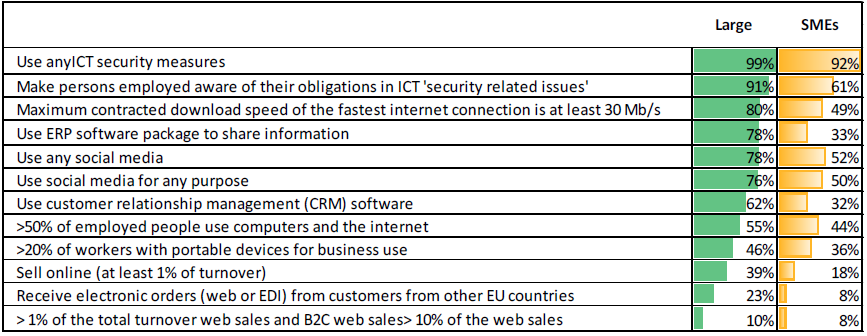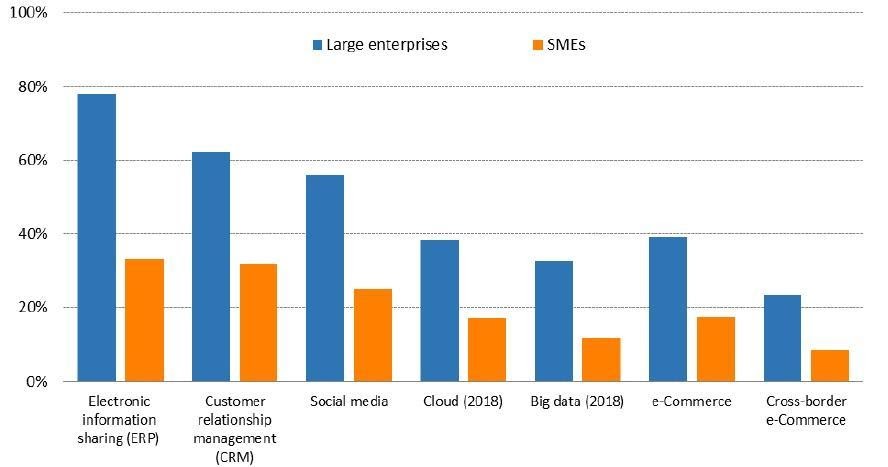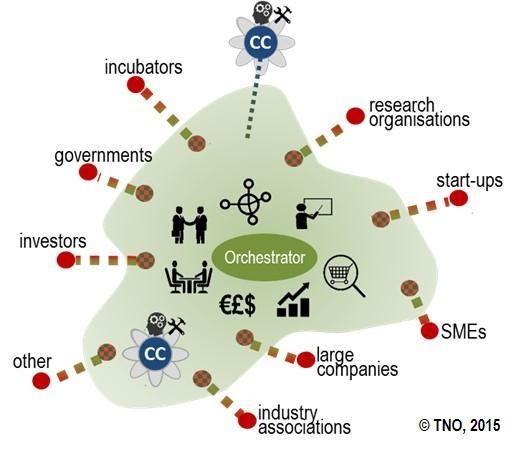
Encore Lab, a Spanish SME, wanted to reduce the use of pesticides and water consumption in agriculture, but the lack of testing facilities was slowing down their product development.
By participating in the EU-funded project EuroCPS, the company received a €52,000 grant and gained the opportunity to work with the Digital Innovation Hub CEA Leti (FR).
They tested and applied cutting-edge IoT technologies to develop a low-cost device to monitor crops directly in the field with sensors.
By integrating this flagship product in Cesens, Encore Lab expected to increase sales to 10,000 units within five years and double its staff to 20.
The innovative solution reduced the use of pesticides by 35% and water consumption by 50%, making agriculture more sustainable and the company’s mission a reality.
Podoactiva, a traditional podiatrist company, was developing a unique method to scan feet using laser and AI technologies to produce tailor-made medical insoles.
The Spanish Institute for Biocomputation and Physics of Complex Systems, acting as a Digital Innovation Hub, provided them with the necessary High Performance Computing (HPC) infrastructure and knowhow to run this software on a pay-per-use basis on the cloud and help them develop a fully working 3D Insole Scan Designer. This methodology opened the door for 3D insole printing and improved production and delivery times.
Podoactiva and Inycon now have private clinics that use this technology in Spain, Portugal, Italy and Mexico, selling tailor-made products to customers worldwide.
Apart from Podoactiva, the Italian SME Base Production also benefited from this cloud-based solution. As a result, they expect to multiply their turnover up to €750,000 in the next 3 years, gain an additional 3% of the market share and reduce their time-to-market by 40%.
The key success factor in both cases has been a European Digital Innovation Hub.
What is a Digital Innovation Hub?
Digital Innovation Hubs (DIHs) are ecosystems launched by European Commission to support companies, in particular SMEs, startups and non-tech companies to approach digital transformation.
Now more than ever in this post-pandemic society, digital technology has exploded and it is clear how essential it is for all business strategies. The process of digitisation offers a tremendous amount of new opportunities for European companies. According to reports by PwC and the Boston Consulting Group, digital transformation could generate up to €110 billion of additional annual revenue for European industry.
Despite this, most European companies, especially low-tech companies and SMEs, still struggle to adopt digital technologies.

So, what’s stopping them?
When asked, almost two-thirds of company managers said they:
- find it hard to assess the Return on Investment with digital innovations
- do not trust new technologies
- are not sure about the maturity of the latest technologies (Big Data, AI, robotics, etc.)
- are not clear about compatibility/interoperability with legacy systems
For SMEs, there are more barriers and less than 40% are highly digitised in the EU.

Source: Eurostat, Community survey on ICT usage and e-commerce in enterprises.
Small and low-tech companies also find it more difficult to access reliable sources of information about the latest opportunities for digitisation and innovation.
ICTs help to increase efficiency, optimise processes and accelerate product development.
But technologies change quickly and the prevalence of so many different digital solutions often make it confusing to choose the best ones to invest in.
This is why the European Commission recently launched a Catalogue of Digital Innovation Hubs.
DIHs were launched in 2016 as a key pillar of digitising European industry. The objective is to build an integrated system which provides a list of services which are not readily accessible elsewhere.

To be as close to companies as possible, DIHs act both regionally and locally and focus on specific sectors (agriculture, mobility, construction, etc.).
If you are company, you can contact a Digital Innovation Hub to:
- define what your company’s digital needs are and how technologically ready it is with online tools either on any DIH website or by using experts
- contact Competence Centres (research labs, universities, industrial stakeholders, incubators). The CC might provide easy and cost-effective access for companies to equipment, facilities and tools for experimentation, piloting and testing new digital technologies (e.g. artificial intelligence, High Performance Computing, Cybersecurity, Blockchain).
- acquire new digital skills. All DIHs periodically organise seminars, workshops, webinars and training courses about the latest technologies, trends and other digital topics.
- find new funding investment opportunities. A DIH works like an antenna. All open calls directed to SMEs and startups launched by EU funding programmes to support research and innovation are disseminated on DIH websites.
Periodically, call for grants are also directly launched by DIHs.
Currently, DIHs are supported through Horizon 2020 projects. Often these projects cascade funding through open calls by engaging SMEs in innovative experiments with DIHs in cross-border contexts. This is very interesting. As a call launched by a DIH might refer to specific targets, the competition is lower and the selection barriers for innovative, industrial or digital projects are often more accessible compared to H2020 or EIC Accelerator calls, for instance. Therefore, the chances of getting funded are higher.
A DIH can also back up your business strategy with banks or private investors who often do not understand the need for companies to ‘go digital’.
- find new connections and build a powerful network.
Digital Innovation Hubs have been designed to attract investors, users and suppliers of digital innovations across the value chain. For a SME or a startup, this could be a great place to get in contact with supply chain partners, financial advisors, professionals and other key players for digital transformation.
As for EncoreLab and Podoactiva, synergies could bring new opportunities to launch an industrial project, open new channels for internationalisation, develop a new product or start a new business.
To sum up, the services offered by DIHs have the potential to enable any kind of company to access the latest knowledge, expertise and technology to approach digital transformation and innovate their processes and products.
We still don’t know if DIHs will be enough to digitise European industry.
What we do know is that over 2000 startups and SMEs to date have been supported by more than 200 DIHs across Europe and the European Commission strongly believes in them.
Indeed, it is expected that the future financial framework (2021-2027) will channel a large amount of funds and investments through structural funds, InvestEU, Horizon Europe, Connecting Europe Facility, to support the creation and sustainability of new DIHs.
If you are a company or a startup, this could be a concrete opportunity to not miss out on accessing digital transformation.
 By
By
Share: